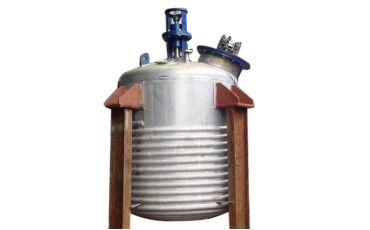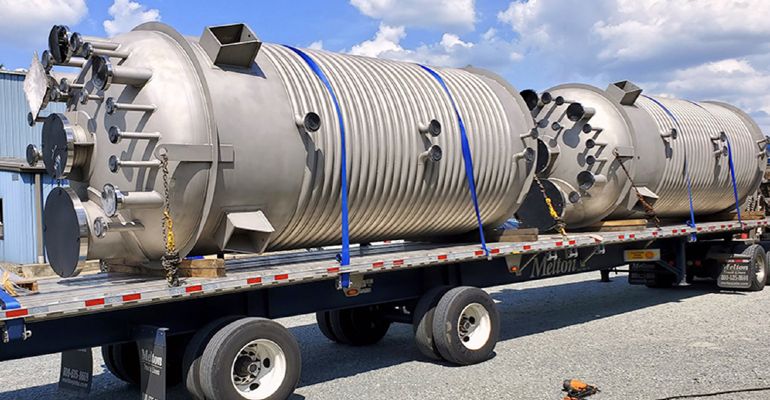Reactors Vessels for edible oil extraction & refinery project, how its working. In edible oil extraction and refinery projects, reactor vessels facilitate various chemical processes to refine crude oil into high-quality edible oils. Here's a simplified overview of how they work:
1. Pre-Treatment :
The crude oil may undergo pre-treatment processes like degumming, neutralization, or bleaching before entering the reactor vessel.
2. Chemical Refining :
In the reactor vessel, the crude oil is subjected to chemical refining processes such as neutralization, where alkaline substances are used to remove free fatty acids and impurities. This helps improve the oil's taste, color, and stability.
3. Physical Refining :
Some oil refining processes involve physical refining, where the oil is steam distilled to remove volatile compounds and odors, further enhancing its quality.
4. Hydrogenation :
In certain cases, hydrogenation may be performed in the reactor vessel to convert unsaturated fats into saturated fats, increasing the oil's stability and shelf life.
5. Temperature and Pressure Control :
Throughout these processes, reactor vessels maintain precise temperature and pressure conditions to ensure optimal reaction rates and product quality.
6. Mixing and Agitation :
Reactor vessels may also incorporate mixing and agitation mechanisms to ensure uniform mixing of reactants and efficient heat transfer.
7. Product Separation :
After the desired reactions have taken place, the resulting oil is separated from any by-products or residues, which may be further processed or disposed of.
Overall, reactor vessels play a crucial role in the edible oil extraction and refining process by providing controlled environments for chemical reactions and treatments, ultimately producing high-quality edible oils suitable for consumption.
- Great Technology
- Certified Engineers
- Delivery Ontime
- Best Branding



